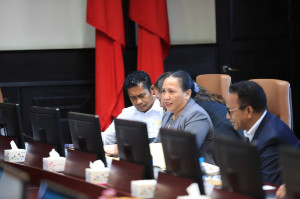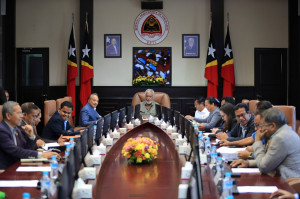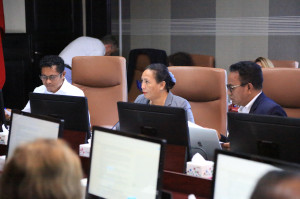Government Approves Measures to Strengthen Transparency and Efficiency in Public Finances

The Council of Ministers, at its meeting yesterday, October 2, 2024, approved a set of strategic decisions within the scope of the Public Finance Management Reform, in line with the Programme of the IX Constitutional Government. These measures, presented by Finance Minister Santina José Rodrigues F. Viegas Cardoso, aim to strengthen efficiency, transparency and accountability in the use of public resources, promoting more effective and results-orientated management. 
The first major measure approved was the draft Public Financial Management Bill, which will substitute Law 2/2022 of 10 February. This new law is part of the process of reforming the public finance sector and aims to improve budget planning by strengthening the link between the budget and the country's strategic planning. The new law also introduces greater transparency into the budgetary process by increasing parliamentary control and allowing for better monitoring of public spending. 
Among the main objectives of this law are the simplification of budgetary planning, with the creation of a medium-term strategy statement, and the promotion of transparency and accountability, providing more information to Parliament and the public. The diploma also focuses on results, to ensure that public spending is aligned with concrete and measurable objectives. The aim is also to strengthen budgetary discipline by introducing new rules for borrowing and financial management.
In addition to this Bill, three draft Decree Laws were also approved that complement the ongoing financial reform. The first of these refers to the new Procurement and Public Contracts Code, which will replace Decree-Law 22/2022. This new regime aims to promote greater flexibility in procurement processes, with special emphasis on strengthening national suppliers and transparency in public contracts. The law includes measures to protect whistleblowers and reinforces the responsibility of public entities in contract management. 
The second draft Decree-Law establishes the Regulations for the Granting of Subsidies, Grants and Donations by the State, with the creation of a strict legal framework for the allocation of public support, to ensure that it is granted in a transparent and efficient manner. The law aims to optimise the use of public resources to promote greater efficiency in spending and guarantee the correct management of the support granted by the state.
Lastly, the third draft decree-law approves the Internal Audit Regulation, which defines the principles and rules applicable to the internal audits of public organisations. The law guarantees that these audits are carried out independently and impartially, promoting internal control and the continuous improvement of administrative operations. This regulation reinforces the role of internal audit units in evaluating control systems and issuing recommendations for more efficient public management.
As stated in the Programme of the IX Constitutional Government, ‘Public Finances are an important factor for the development process in Timor-Leste. Therefore, the government will continue to improve and strengthen fiscal policy and the management of public finances with transparency, responsibility, efficiency and sustainability, as one of the priorities during its mandate.










































